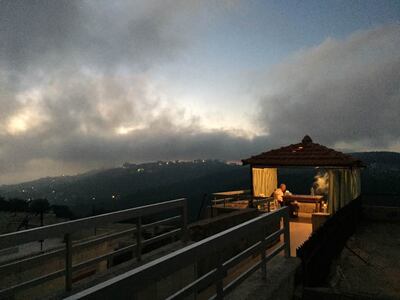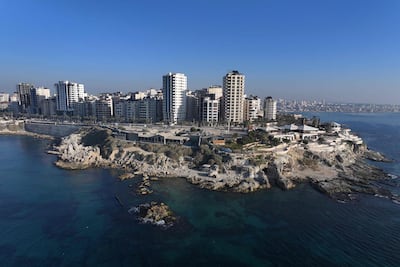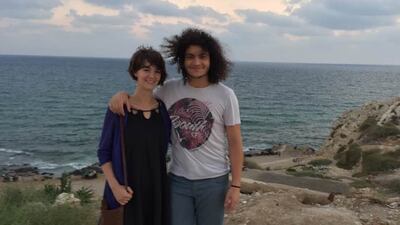The first time I visited the port city of Latakia, it was timed perfectly with an August sunrise. The taxi driver grabbed a handful of jasmine flower petals drifting just outside the car window as we passed the final military checkpoint into the city and threw them in the back seat. “Welcome to Syria!” he exclaimed in English, instantly filling the car with their sweet smell.
My first visit to Syria took place in 2017, six months after I married my husband, Bashar, in Istanbul – and this was my first time meeting his family in person. I was living in Turkey as an English teacher and had spent time in Cuba and Tajikistan as a student, so I was comfortable visiting new places somewhat cut off from the rest of the world. But Syria was something else.
While this visit was a first for me, it was a first after a long time for my husband, who had left the country nearly four years prior. He first went to Turkey on Christmas Eve, cutting his college studies off early since, as a military-aged man, he would no longer be allowed to avoid the military draft once he graduated.
One of the first things Bashar told me about himself was that he was someone who never thought he would leave his hometown. I was quite the opposite – having left my home in a small US city at 18 and moving successively further east as the years progressed. I always felt a strong urge to be far from home, experience new things, learn new languages and avoid routine as much as I could.
My husband, on the other hand, learnt Turkish and English only as a survival mechanism. His identity as a musician not only provided him with a musical ear perfect for language learning but for social networking that allowed him to create a liveable path for himself as one of millions of Syrian refugees abroad.
When we arrived at Bashar's family home, it was his older brother who first came down to greet us at the car. I was not expecting it, but the tears started to flow from my eyes involuntarily as I recognised his face from the months of video calls. The communal sobbing continued as I met his mum, his sister-in-law, his dad and the rest of the family. Everyone had stayed up all night waiting for us to arrive. Bashar finally met his niece for the first time.

From inside that living room, there was a full world. We drank coffee, ate sweets, sat with our feet up and everyone seemed at such ease and comfort in being themselves. In the days that followed, I finally understood why Bashar never felt the urge to leave. Inside this house, it was OK to be bored, to be sad, to be happy, to be yourself. Older generations spent time with the younger generations, and it didn’t feel forced by family obligation. Outside, all within walking distance, was an open-air market, a seaside promenade, a dairy shop for yoghurt and labneh, a tiny hummus shop, several bustling cafes, an old church … what else did you need?

Life, despite its inherent material challenges, was simple. I never needed to leave. But leave we did, and we tried to come back at least once a year for a visit. With each successive trip, the military checkpoints became fewer, but so did the hours of electricity available per day. All the same stores were open, but food quality was poorer. The Syrian pound sank to new lows as inflation hit new highs. The simple mood inside the house, too, began to decay into pessimism, laments, and resignation to a relentlessly tiring fate. Years of scraping by had taken its toll on the ability to live in the present, much less imagine a better future.
When my husband first left Syria, he told me, he wasn’t in the habit of carrying a wallet, he didn’t know what email was, and so many of the modern formalities strongly in place by 2014 became something he had to quickly learn to survive in the outside world. In my early visits, I got to see this simple existence. Now, only time will tell what kind of life will become normal in Syria in the years to come.


